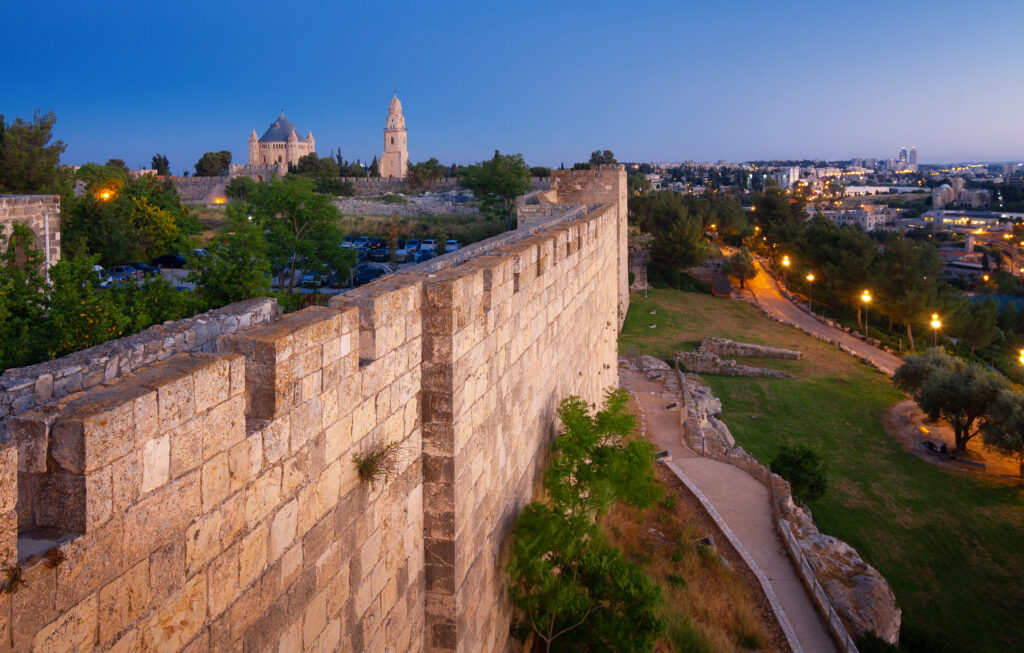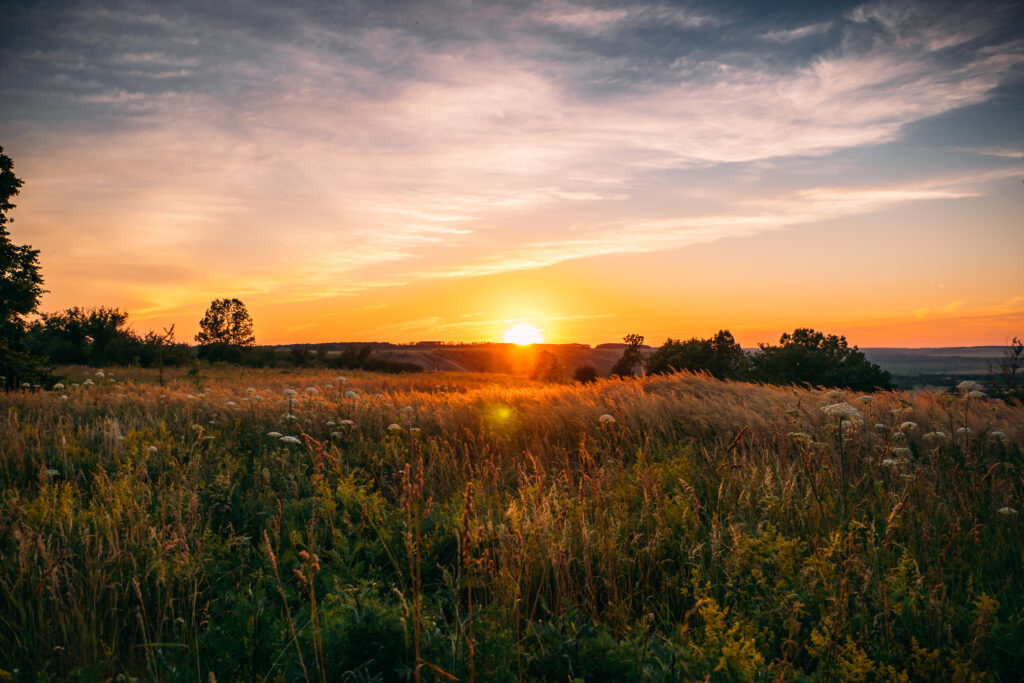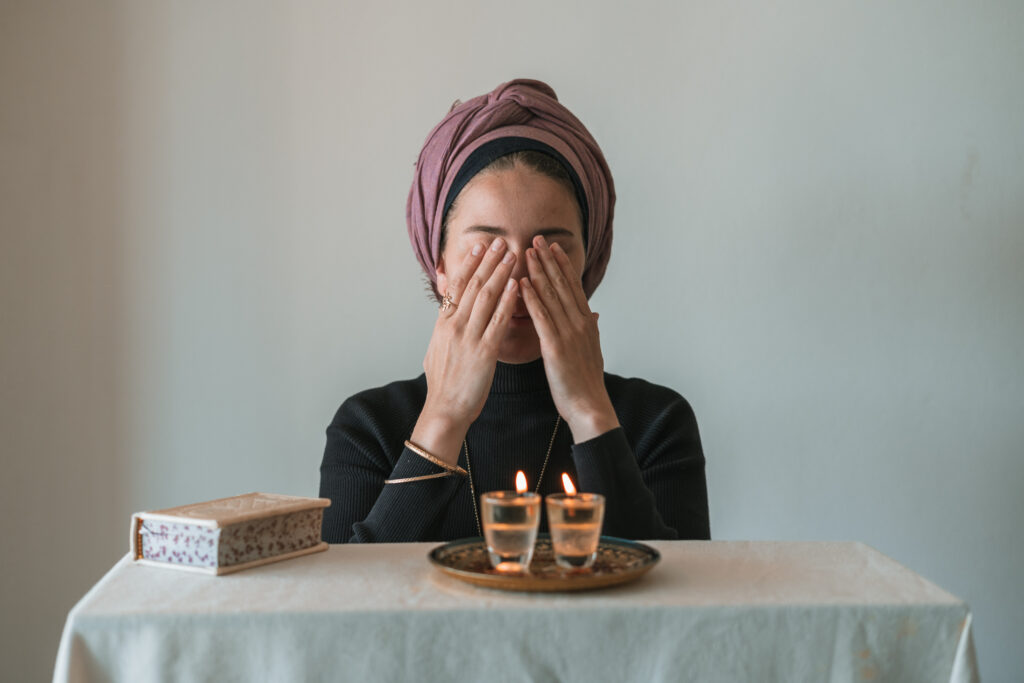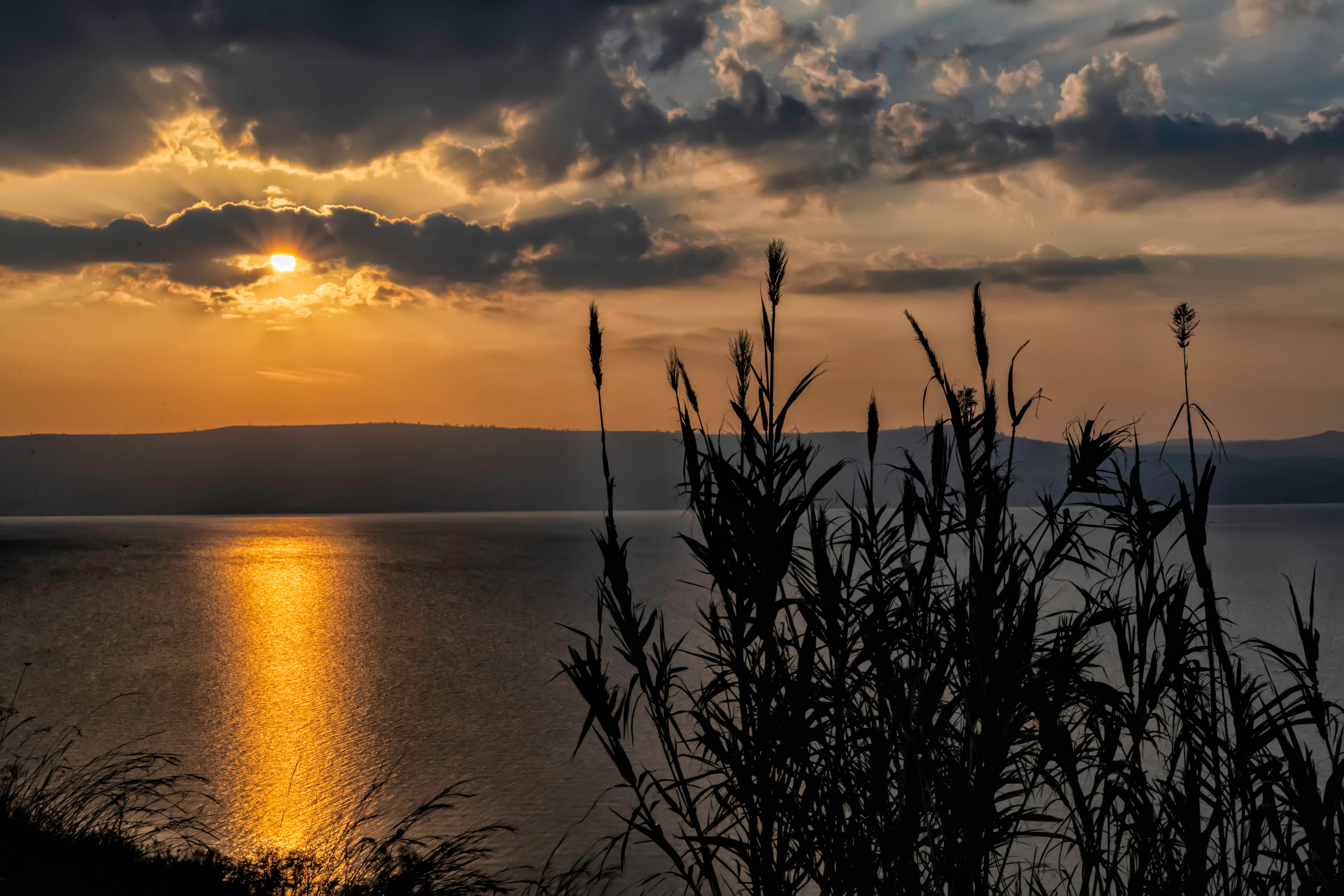What does “erev” mean in Hebrew?
English most often translates the Hebrew word “erev” as “evening.” But as the Jewish poet, Haim Nachman Bialik, (1873-1934) once said, “Reading the Bible in translation is like kissing your new bride through a veil.” There are so many meaningful treasures that Hebrew communicates that we often miss in English. The English translation of the Hebrew word erev captures only a small aspect of its rich meaning and significance.
The Hebrew Word Erev
Firstly, in the Hebrew language and culture, “erev” carries connotations of transition, anticipation, and potential.
Secondly, in the Hebrew Bible, “erev” is often used to describe significant events and moments of transition. It carries a rich and complex meaning that goes far beyond its translation as “evening” in English.
For example, in the story of the creation of the world, “erev” describes the moment when God created the first man and woman. This moment comes at a pivotal point in human history. The potential for all of humanity was first realized then.
Erev in the Hebrew Bible
Similarly, “erev” is used in the Hebrew Bible to describe the pivotal moment before the Israelites left slavery in Egypt. In the evening before they began their journey towards the Promised Land, they ate the Passover lamb.
Yet before we continue at looking how erev is used in the Scriptures as a point in time, it’s important to consider how the Hebrew or biblical mind understands the passage of time.
Biblical Pattern of Time
Today, our western mindset thinks of time in a straight line. Time goes from point A to point B. Something begins and something ends. This is different from how the Scriptures demonstrate it. Not understanding this difference can cause confusion when considering how an uncreated God existed before “the beginning” of Genesis 1:1.
Cycles begin with “Erev”
So, the Biblical Hebrew mindset does not view time in a straight line. Instead, it operates in cycles of days, weeks, months, seasons, years or even ages. For example, the sun and moon are on morning and evening (or erev) daily cycles. Shabbat happens weekly. Leviticus speaks of monthly events and annual feasts of the Lord. The Jubilee was to occur every 50 years. The cycles begin first at “erev.”
Although hard for our western minds to grasp, the Scriptures do not talk of “the end of time” but the “end of the age.” According to the Old and New Testament, there were “ages” or seasons of time before this age. Plus there will be ones after this age ends.
Verses about Erev in Hebrew
“Is there anything of which one might say, “See this, it is new”? Already it has existed for ages which were before us.” Ecclesiastes 1:10
‘But the saints of the Highest One will receive the kingdom and possess the kingdom forever, for all ages to come.’ Daniel 7:18
Jesus also pointed to this Hebrew concept of time when He said:
“Truly I say to you, there is no one who has left house or brothers or sisters or mother or father or children or farms, for My sake and for the gospel’s sake, but that he will receive a hundred times as much now in the present age, houses and brothers and sisters and mothers and children and farms, along with persecutions; and in the age to come, eternal life.” Mark 10:29-30
Days of Creation
Yet no matter how large that “ages past” or “ages to come” may feel to fathom and consider whatever that may mean, Genesis records that “in the beginning” God started us with the simplest measurement of circular time: one day. Notice when Genesis 1:5 tells us that “the day” begins:
“God called the light day, and the darkness He called night. And there was evening (erev) and there was morning, one day.”
Why Jewish Holidays Start at Sundown
A biblical day begins with “erev.” Throughout the 6 days of creation, it is repeated 6 times that these special days of beginnings were “an evening and morning, one day”. For this reason, all throughout Jewish history, calendar and culture, Hebrew days begin in the evening or “erev”.
Erev Tov in Hebrew
When Hebrew speakers say “erev tov,” they are wishing each other “good evening.” Whereas, if they were to say “lilah tov,” they would be saying “goodnight.”
The role of Erev in Creation
By God’s design, man was created on the 6th day. Adam’s first erev began the 7th day, God’s day of rest. Adam had only existed for a few hours at that point.
This means that after God made Adam in His image, gave Adam dominion over everything and a command to “be fruitful and multiply”, Adam’s first erev, his very first full day on earth, began with a day of rest.
Similarly, our bodies were made to rest and sleep at night. If we are following a biblical view of time and days, even when we are dealing with troubles and hardship in our lives, as each new biblical day begins at erev, we rest.
This was God’s plan and design for us to start each and every new day. He wants us to trust Him and to first rest in the plan that He has put in place for us from the beginning. Biblically, the day starts with our rest, then we can awake refreshed, ready to address the day.
Erev Shabbat
This same view is carried into Shabbat. Meaning, it begins already on Friday night, as “Erev Shabbat” begins at sundown. Traditionally ancient rabbis have said, the Shabbat should be welcomed as a new bride with joy, peace and thankfulness.
This is how true rest is intended to be. The Jewish idea of the day’s eve creates space for anticipation and preparation. Like with Adam, there are all of our God-given responsibilities that we could be doing. Yet, there is peace and thankfulness in knowing that rest is the priority.
Rest and Anticipation
This is what Hebrew erev shabbat ushers in for us. We trust and rest in the anticipation for the week ahead that He can do more for us in 6 days than we can do in 7. What better way than to gather with family and friends on erev Shabbat and remind each other of this fact!
Another notable event that happened in the Scriptures at erev – the very start of a new biblical day. It was when the dove returned with a olive leaf to Noah in the ark. Noah most likely rested that night, being full of hope for a new day of life—for what he would find when he awoke.
Erev Passover
Perhaps the most significant event to happen at erev was the sacrifice of the Passover lamb by the Hebrew people in Egypt. The NASB translation says this in Exodus 12:6:
“You shall keep it until the fourteenth day of the same month, then the whole assembly of the congregation of Israel is to kill it at twilight.”
The word translated here as “twilight” is the Hebrew phrase ben ha arbayim, taken from the root word erev. Sometimes also called “between the two evenings”, this twilight time has been a point of rabbinic debate throughout the centuries.
Its challenging to place an actual modern time on these instructions. However, most ancient rabbis agree that is refers to afternoon until dark or approximately between 1pm to 6pm.
When was the first Passover lamb killed and eaten?
In other words, the Passover lamb was to be sacrificed at the very end of one biblical day and eaten that night. At that point, it would be at the beginning of a new biblical day. The meal was prepared and eaten in haste in the first moments of the new day, with full expectation that deliverance is coming!
God’s instructions were very specific as to when the Passover lamb was to be killed. Unsurprisingly, the New Testament is just as specific. Matthew, Mark and Luke all recorded that Yeshua was crucified and died at the ninth hour of this same day.
Between Two Evenings
If the first hour of the day or of daylight was at 6 in the morning, that would make the ninth hour of the day at 3pm or “between the two evenings”. The 3 gospels record Yeshua’s death as the same time that Moses commanded the Passover lamb to be killed in Exodus 12.
This also would have been a reason for the rush by Joseph of Arimathea to request the body from Pilate. He wanted to quickly get it in a nearby tomb before the evening Passover Shabbat to set in. There was not enough time for the body to be prepared with burial spices. That is why the women had later returned to do so.
Erev of Luke 24
The following week, we can also see the concept of erev as starting a new day of potential. It was during the day in Luke 24 when the Lord did not show His identity to the two men He walked and talked with on the road to Emmaus.
It wasn’t until late afternoon that the men urged Him saying, “Stay with us, for it is getting toward evening, and the day is now nearly over.” So He went in to stay with them. (Luke 24:29-30)
A New Jewish Day
It was at the start of this new Jewish day, in the evening (erev) at the breaking of bread, that their eyes were opened, and they recognized him.
Thus, as you can see, the biblical and Hebrew usage of erev is so much more than just an “evening” space of time. In English “evening” often signifies a conclusion of something, even an end. The Jewish idea of eve comes with anticipation of what is ahead.
Even in our hard times, just as Psalm 30:5 promises, “weeping lasts for the night (erev), joy will come in the morning.” This encourages us that at the start of every “erev”, there is always hope for the future.
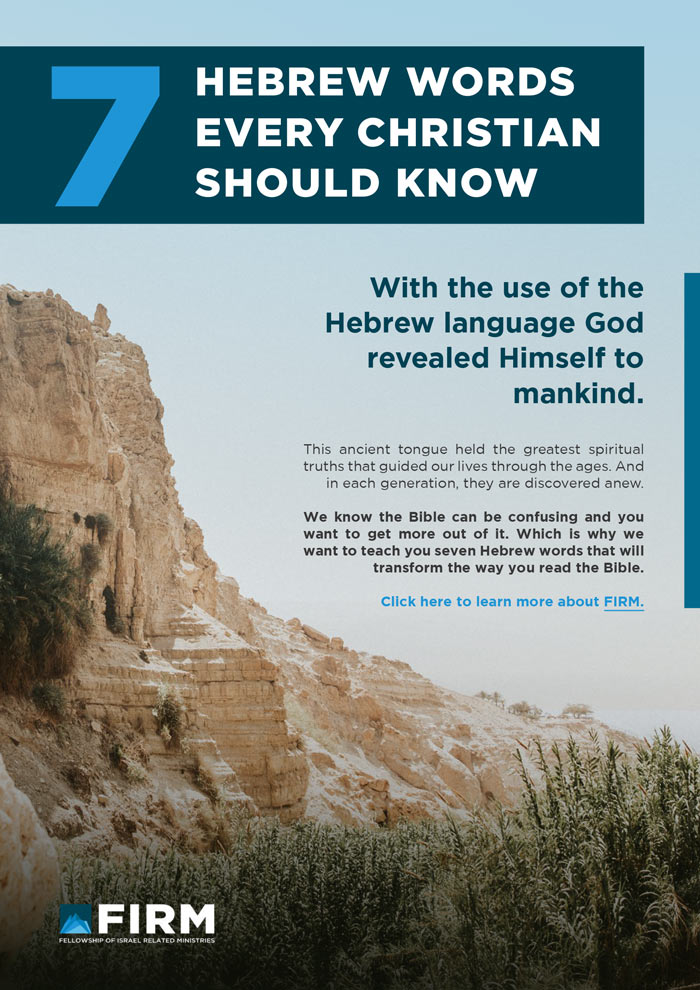
7 Hebrew Words Every Christian Should Know: Free PDF Download
With the use of the Hebrew language God revealed Himself to mankind. This ancient tongue held the greatest spiritual truths that guided our lives through the ages. And in each generation, they are discovered anew.
We know the Bible can be hard to understand and you want to get more out of it. Which is why we want to teach you seven Hebrew words that will transform the way you read the Bible.
Articles Related to The Hebrew Word Erev and why Jewish Holidays Begin on the Eve
Estimated reading time: 9 minutes
